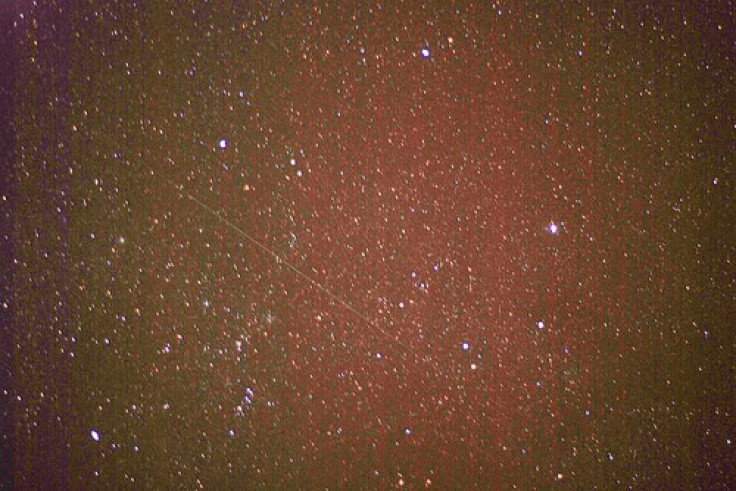UK stargazers disappointed as Orionid meteor shower peaks on a cloudy night

Stargazers have had their hopes dashed as forecasters predict overcast conditions on the night the Orionid meteor shower is due to peak. Settled weather conditions are expected to cease on Wednesday (21 October) with heavy rain and strong winds predicted on that day.
The Orionid meteor shower will be at its peak on the night of 21 October and into the early hours of 22 October, with Nasa forecasters expecting up to 20 meteors per hour during this time period if the skies are clear. The annual meteor shower occurs when the Earth passes through the debris left over by Halley's Comet, which can usually last for a few weeks. This year's Orionid meteor shower is expected to last until 14 November, however, 21 October has been noted as the best date to watch it.
Unfortunately, a low-pressure air system from the Atlantic is bringing in heavy rain and strong winds to the UK on 21 October, which could lower chances of catching a glimpse of any meteors. The Met Office has said there is a "poor chance" of viewing the meteor shower for most of the UK on 21 October, with a "moderate chance" for eastern parts of the country. Conditions are said to improve slightly on the night of Thursday 22 October, with much of England having a "moderate chance" at viewing the meteor shower.
To be able to maximise your chances of seeing the Orionid meteor shower, experts say that areas far away from city lights are best for the viewing. The National Trust has listed suggestions for the best stargazing spots in many UK towns through its Dark Sky Discovery project, however, dark open fields are generally recommended for stargazers.
The name Orionid originates from the constellation Orion, from which the meteors appear to emerge. Due to the moon being in its first quarter on 21 October, the meteor shower will be visible in both the Northern and Southern Hemispheres. Nasa has said that just before dawn is the best time to look out for meteors and also recommends not using telescopes or binoculars to do so.
A statement from Nasa said: "Using either reduces the amount of sky you can see at one time, lowering the odds that you'll see anything but darkness. Instead, let your eyes hang loose and don't look in any one specific spot. Relaxed eyes will quickly zone in on any movement up above, and you'll be able to spot more meteors."
The Met Office has said that it could take up to 20 minutes for your eyes to get adjusted to the darkness, while Nasa has warned people against looking at their mobile phone or any other lights once they have begun watching the meteor shower.
© Copyright IBTimes 2024. All rights reserved.






